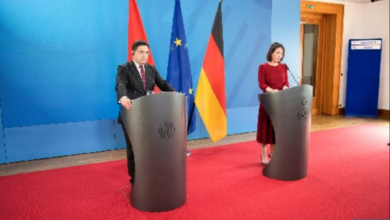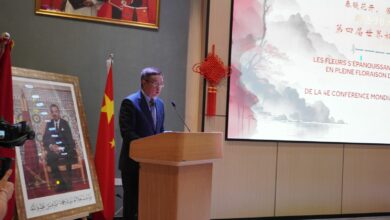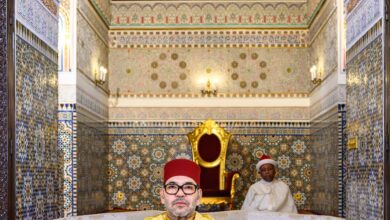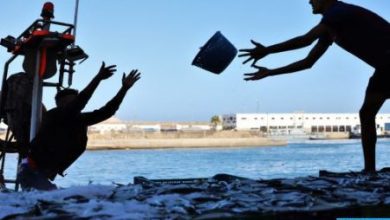Nasser Bourita in Paris: A Visit at a Strategic Moment with Clear Messages
Nasser Bourita in Paris: A Visit at a Strategic Moment with Clear Messages
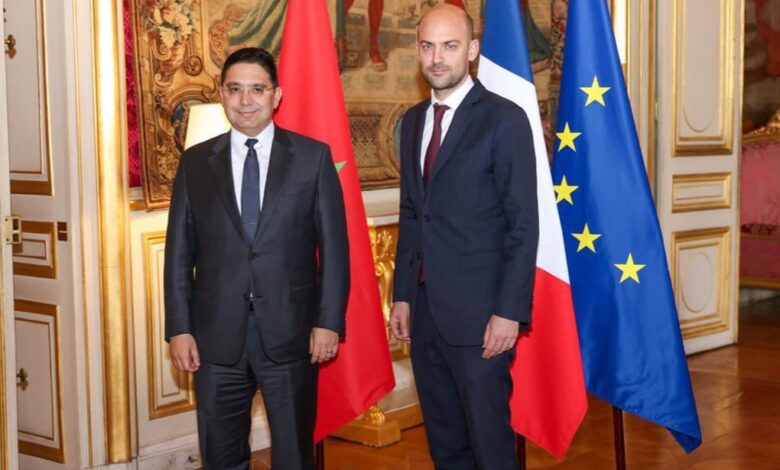
Aldar / Analysis
Amid rapid diplomatic developments that reflect the new momentum led by the Kingdom of Morocco on the Sahara issue, Minister of Foreign Affairs Nasser Bourita arrived in the French capital, Paris, for a visit laden with significant political and strategic meaning.
On the international stage, there is growing support for Morocco’s sovereignty over its southern provinces, driven by the strategic vision of His Majesty King Mohammed VI. This royal guidance has led to tangible progress in the Moroccan Sahara dossier, especially at the European level, where an increasing number of countries are endorsing Morocco’s Autonomy Plan as a serious and credible basis for a lasting solution to the conflict.
This shift is not an isolated incident but the result of an active diplomatic effort launched by Rabat, which has succeeded in rallying support from countries in Central and Northern Europe, such as Hungary and Estonia. This reflects Morocco’s ability to convince partners from diverse political and geographical backgrounds of the legitimacy of its cause.
Bourita’s visit to Paris comes shortly after the French Foreign Minister’s trip to Algiers, which some parties attempted to use to suggest a shift in France’s stance on the Sahara issue. However, the outcomes of the Moroccan minister’s visit refuted these allegations and clearly reaffirmed France’s continued support for Morocco’s sovereignty and territorial integrity.
It is also worth noting the letter sent by President Emmanuel Macron to His Majesty King Mohammed VI on the occasion of the 25th anniversary of the Throne Day, in which he stated that “the present and future of Western Sahara lie within the framework of Moroccan sovereignty.”
Bourita’s visit coincides with a closed-door UN Security Council session on the Sahara, led by the UN Secretary-General’s Personal Envoy, Staffan de Mistura. This context presents Rabat with a strategic opportunity to reaffirm its leadership and consolidate its position among international stakeholders. The visit is especially significant as France currently holds the presidency of the Security Council for the month of April.
Traditionally viewed as a sensitive month due to UN-related deadlines, April has now been transformed by Morocco’s proactive approach into a moment of diplomatic leadership, in which the Kingdom sets the pace and shapes the discussion agenda, rather than merely reacting to events.
By acting proactively, Morocco has managed to break free from the reactive rhythm imposed by the UN calendar. It has successfully turned this former constraint into a lever of influence, building a strong network of allies and supporters of its Autonomy Plan for the Sahara.
This shift reflects Morocco’s political and diplomatic maturity. The Kingdom no longer approaches the Sahara issue from a defensive posture, but as a leading and active player in shaping regional and international developments.
Ultimately, Nasser Bourita’s visit to Paris is not just a routine diplomatic stop, but part of a broader strategy led by King Mohammed VI. Its goal is to further solidify international recognition of Morocco’s sovereignty over its Sahara and to strengthen the Kingdom’s position as an influential and proactive diplomatic force within its regional and global environment.

